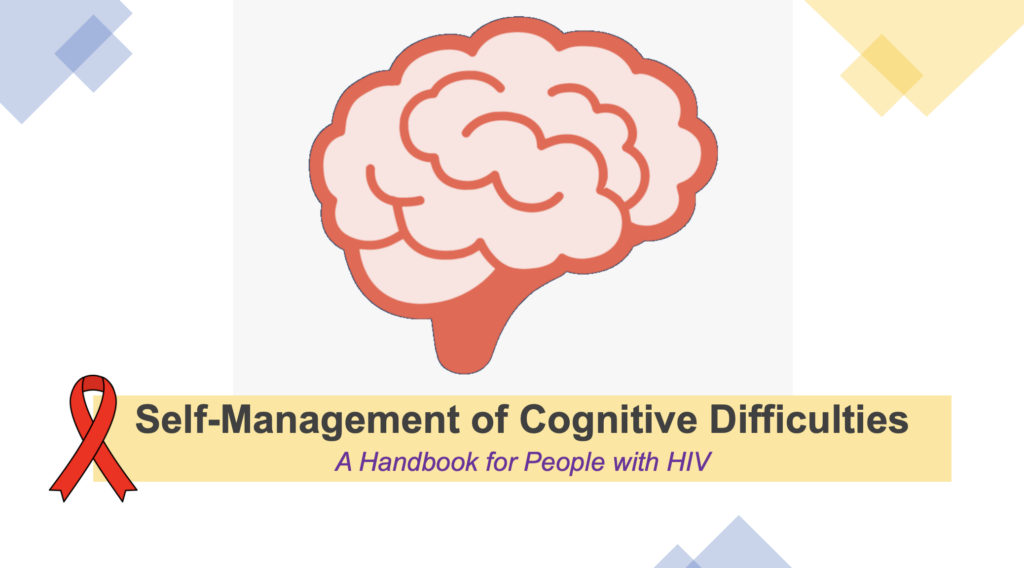Below are resources relevant to the early detection, assessment and monitoring of cognitive impairment. Please refer to the previous articles on assessment, management and monitoring for recommendation on their use.
EACS recommends healthcare providers may use the following questions to guide initial assessment of cognitive symptoms.
- Do you experience frequent memory loss (e.g. do you forget the occurrence of special events even the more recent ones, appointments, etc.)?
- Do you feel that you are slower when reasoning, planning activities, or solving problems?
- Do you have major difficulties paying attention (e.g. to a conversation, book or film)?
Answering “yes” to one or more of these questions may suggest the presence of cognitive disorders, although not necessarily linked to HIV.
For more information on thse questions and the EACS guidelines regarding cognitive impairment, click here
There are three versions of the MoCA available in English.
- Version 8.1 (Test and instructions)
- Version 8.2 (Test and instructions)
- Version 8.3 (Test and instructions)
The MoCA is available for free in over 100 languages, please click here for more versions and their online training programme
- English (test and instructions)
Other language versions are available here
Managing symptoms and finding strategies to lessen the impact memory and thinking problems have on your life is a really important step in being able to get on with living well with these types of problems. This type of support is often called cognitive rehabilitation.
Our colleagues in Canada have recently developed a cognitive rehabilitation booklet for people living with HIV who experience problems with memory and thinking.
The booklet contains a short self-assessment along with lots of strategies, based on research, to improve your memory, concentration, planning and organisation.
We really recommended you take a look and see if there is anything helpful you could apply to your routine and daily activities.

You may be aware that new international consensus guidelines, developed by the HIV-Cognition Working Group, have been published that update earlier documents related to the diagnosis and management of neurocognitive impairment in people living with HIV (1).
The International HIV-Cognition Working Group have sought to correct the potential for over diagnosis linked to the HIV-Associated Neurocognitive Disease (HAND) criteria and focus on differentiating between HIV and numerous other causes.
The new guidelines propose using HIV-associated brain injury (HABI) as a new term for cases where HIV directly causes complications and highlight that low performance of neurocognitive testing can result from social, educational and language skills rather than any active injury.
The article also emphasises the importance of differentiating between historical archive or legacy damage and ongoing active neurological problems.
These guidelines differ from earlier criteria used in the HAND criteria by identifying HIV as the direct cause of symptoms and in requiring a clinical assessment to interpret results from neurocognitive testing.
The writing panel – the International HIV-Cognition Working Group) – included doctors, researchers and community advocates from South Africa, India, Uganda, Kenya, Zambia, Europe, the US and the UK.
Six main recommendations
- HIV-associated brain injury (HABI) should be considered as one cause of cognitive impairment alongside other potential causes of brain injury occurring in people living with HIV.
- HABI should be differentiated on the basis of HIV RNA suppression and the activity of pathology.
- Low performance on cognitive tests should not be labelled as cognitive impairment without clinical context.
- When interpreting cognitive data, the false-classification rate should be considered.
- A research classification of cognitive impairment in people living with HIV should consider a combination of cognitive symptoms, low performance on cognitive testing, and abnormality on neurological investigations.
- Cognitive symptoms should refer to any change in cognition that has been noticed by the individual or an observer, whether or not this change has an impact on daily functioning.
To read the full article: Nightingale, S., Ances, B., Cinque, P. et al. Cognitive impairment in people living with HIV: consensus recommendations for a new approach. Nat Rev Neurol 19, 424–433 (2023). https://doi.org/10.1038/s41582-023-00813-2